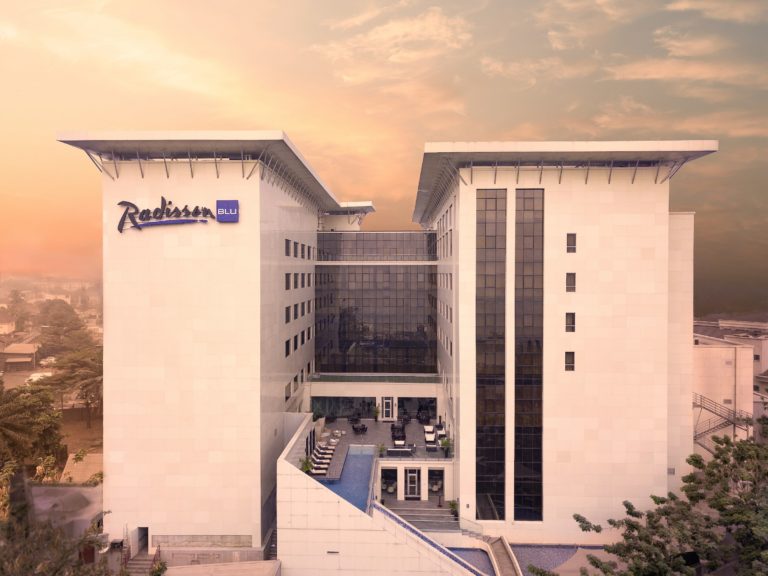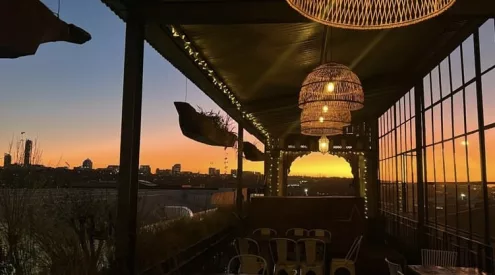The travel and tourism industry has ground to a halt as a result of lockdown and are facing many challenges. Some stakeholders have taken to joining a nationwide protest in the #JobsSaveLives movement.
Read: #JobsSaveLives protests continue, police intervene
Getaway spoke to Tim Cordon, Area Senior Vice President, Africa & Middle East, of the Radisson Hotel Group about what the future of tourism and hotel stays could look like.

The hotel industry will rely heavily on the support of local travellers.
As a stakeholder in the tourism sector, what is your view on government’s banning of leisure stays, as well as the seeming contradictions?
We believe that governments across the world face incredible challenges and while it is disappointing to have to limit our activities, we understand the need to keep citizens safe. However, we do hope that this ban will be lifted soon, giving us all the opportunity to prove we are able to institute the necessary precautions to keep our team and guests safe, while we assist in reigniting the sector.
How has the lockdown from start affected your business and what are your plans for the future?
We have witnessed some delays due to the lack of movement of people and goods during the various lockdowns and the associated travel restrictions. We are, however, now witnessing the beginning of a gradual return to activity as these restrictions begin to ease across the continent.
We expect a period of 24 months in terms of recovery before we’re likely to return to our performance levels of last year. It is difficult to make firm predictions now, when so much depends on when countries reopen their borders, and how quickly tourism-associated infrastructure, like airlines and other forms of transportation, return to normal.
In the meantime, we have paid a lot of attention to implementing the highest safety and hygiene protocols across all our hotels, with the Radisson Hotels Safety Protocols in collaboration with SGS.
This will definitely help us to reassure our guests as they resume their travel plans, while also, of course, alleviating the risk of further spread of COVID-19.
For South Africa, the resurrection of the tourism industry can only begin once we really see an easing of lockdown and travel restrictions. It will start with the domestic travel market, followed by their international counterparts once international borders reopen, and we look forward to everyone embracing the industry and supporting us all in every way possible.
How will domestic travel change in the future, and will you place a stronger focus on business travellers than families? (In light of the current regulations stating only business travel is allowed).
Destinations around the world, including South Africa, will first welcome domestic travellers again. Even though everyone is obviously itching to travel once again, we foresee that they will want their trips to be closer to home, with more emphasis on road than air travel. We anticipate a gradual uptake of air travel, certainly at the start of our emergence from this pandemic, until travellers become more confident with the precautionary protocols. As a result, we will certainly place a lot of focus on what the domestic traveller wants and needs, and how we can ensure that locals get the chance to experience Radisson hotels within their home cities or countries. There is currently a focus on business travel, yes. But it won’t be long before families are allowed and want to travel again, and many will be eager to support local businesses and hotels.
Will your group be offering any special rates for local travellers as soon as they may travel?
Bearing in mind that most have and continue to be financially impacted by the repercussions of the pandemic, we will most certainly be offering unbeatable staycation deals which will allow guests to enjoy the various unique offerings of our hotels within their home cities and countries, while adhering to safety and hygiene protocols.
Have you had to let go of any staff, and if so, can you give a percentage?
Any business that trades in travel and hospitality has to be realistic in terms of long-term prospects, and I think COVID-19 will reshape the way in which we engage with our guests and as a business over the next couple of years. Having said that, we have tried to retain our talent as far as possible, via measures such as focusing on interventions such as reduced working hours, temporary layoffs or cutting costs in other parts of our business. Being a hotelier, hospitality is all about people, working with and taking care of them, and we shouldn’t lose sight of that. Without our passionate teams, we just wouldn’t be able to deliver memorable experiences for our guests. So we’ve really guarded our talent resource very passionately over the past few months, even though there have, of course, been some difficult decisions that have had to be made. These were always focused more on reducing costs than letting people go, as far as possible.
What are the opportunities for expansion that have emerged?
COVID-19 has accelerated our interest in the conversion of existing properties, as owners seek ways to improve and secure their performance with stronger and more established brands, like Radisson Hotels. We have a long history of successful takeovers and this is likely to become a priority approach for us now. The specific challenges delivered by the pandemic will force many to revisit their best business model, including considering the benefits of affiliation to a wider network such as ours.
The objective we have set is to reach 150 hotels in operation and under development within the next five years. Today we are almost at the first milestone of 100 hotels, which then translates to an annual objective of 10 additional hotels to reach our target. This is doable given the size of the region, but also demonstrates our focus on quality and on securing the right opportunities in the right location, and with the right partner.
We are conscious of the race developing between hotel chains across the continent, but most involve acquisitions rather than organic growth. Our recognition in the market, coupled with our tailored strategy for Africa, will continue to demonstrate our strength in growing through relationships and partnerships. We will continue to focus on always remaining relevant to our owners as we move forward.
Do you think the health and safety protocols all must implement will affect the demand for travel, seeing as it is inconvenient and limit the facilities that visitors can enjoy?
After such an extended lockdown and worldwide travel restrictions, I believe that people will be eager to travel again even if it means enjoying hotels and facilities in a different way. This is going to be our reality for a long time ahead, and in order to protect loved ones as well as strangers, we believe that people will fully understand and accept the strict health and safety protocols to which they will need to adhere.
Will you be charging a ‘sanitising fee’ as many hotels have taken to do?
Our hotels will not be charging a sanitising fee as sanitising forms part of our new daily operations. Safety and hygiene protocols will be conducted routinely to ensure the safety of our guests and teams.
Also read:
Image credit: Supplied














